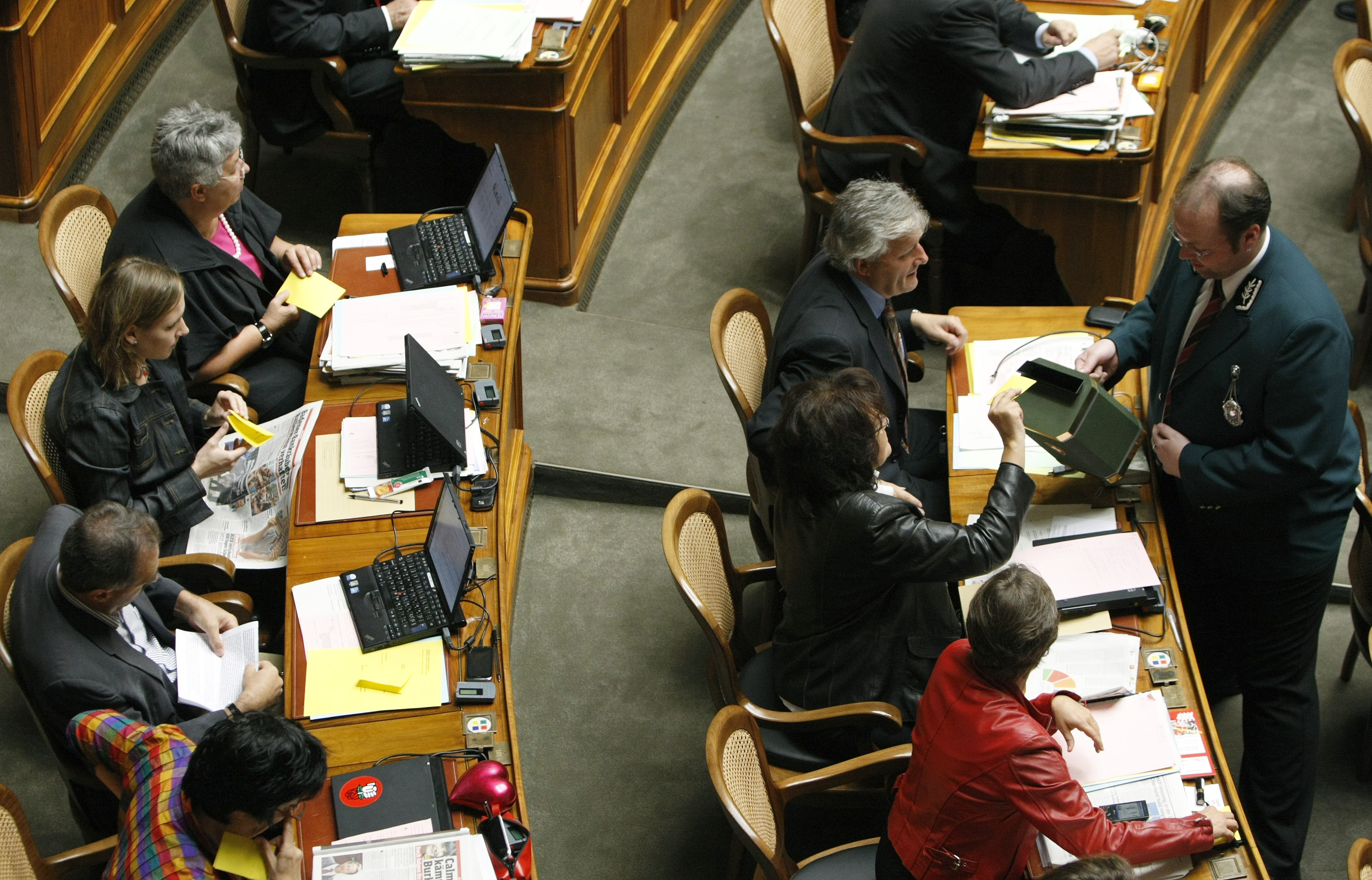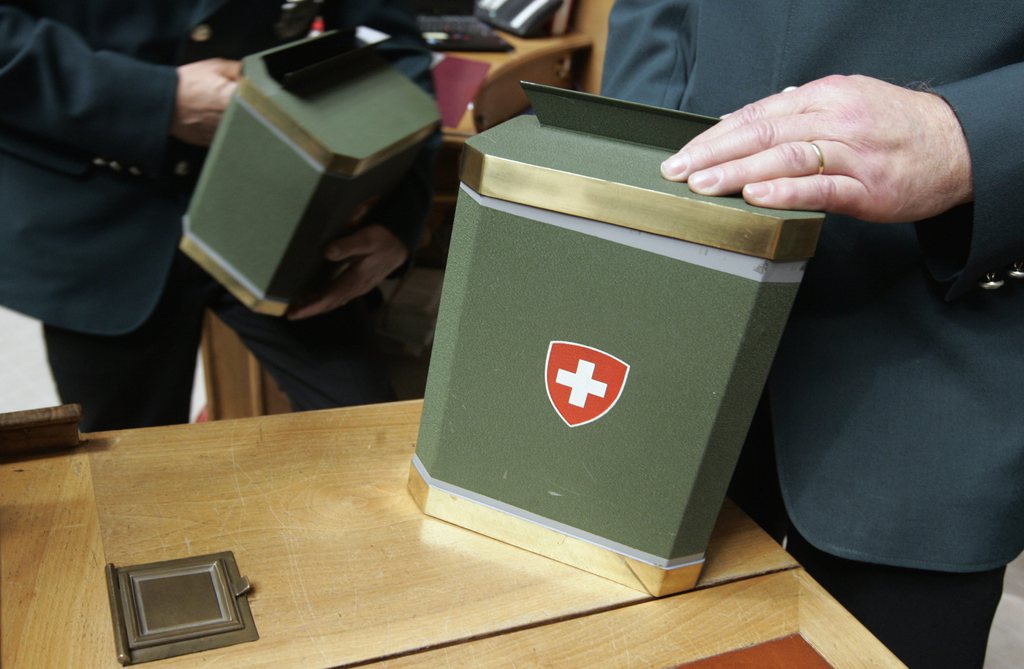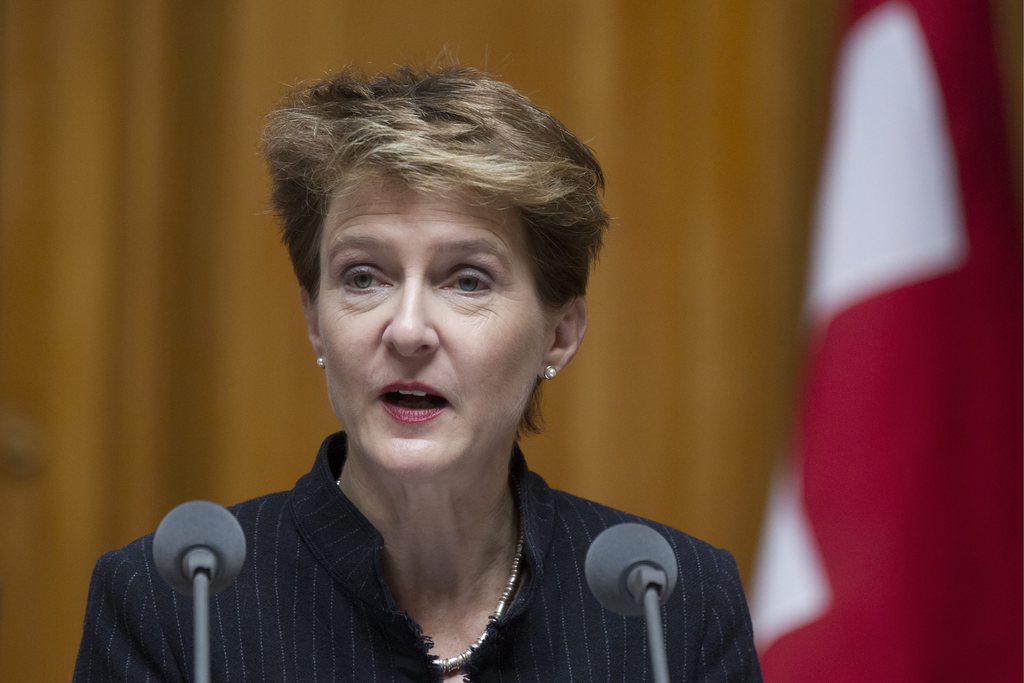Stricter rules will stay

A large majority of Swiss have voted in favour of keeping in place a more restrictive asylum policy implemented last autumn. In a second decision on Sunday, the Swiss gave a vote of confidence to the government and the current system used to elect the cabinet.
More than 78 per cent of voters supported the change to the asylum laws.
The legislation was introduced in September 2012 thanks to a fast-track parliamentary procedure, since the new package of measures was considered urgent due in part to an increasing number of asylum requests. There has also been growing public concern about crime committed by asylum seekers.
Sunday’s nationwide vote was forced by opponents of the new restrictive measures including the political left and trade unions, churches and some human rights groups.
The revised legislation, limited to three years, gives the government increased powers over the country’s 26 cantonal authorities to house asylum seekers and to set up special centres for those considered troublemakers.
The change also scraps asylum requests at Swiss embassies abroad and rules out providing sanctuary to conscientious objectors to military service who claim their lives are in danger on those grounds.

More
Asylum and cabinet reforms set for clear result
Internationally compatible
The government says the new package of measures is compatible with international standards. Justice Minister Simonetta Sommaruga has pledged that Switzerland will continue to provide shelter to people in need.
But a government advisory body, the anti-racism commission, countered that previous reforms led to individual and collective discrimination of asylum seekers. It warned against unjustified xenophobic crusades in an effort to crack down on abuses of the Swiss asylum system.
Ahead of the vote, three of the five main political parties called on the Swiss to approve the asylum law.
Two parties on the left were against it, while the centrist Christian Democrats were split down the middle.
Swiss asylum legislation has been changed ten times over the past three decades and at least six nationwide votes have been held on the issue.
Cabinet elections
The second issue voters decided on was a proposal by the rightwing Swiss People’s Party to let citizens – instead of parliament – elect the seven-member cabinet.
The outcome was a clear rejection with three-quarters of the Swiss wanting to keep the current system, not buying the People’s Party arguments that a reform would boost the country’s system of direct democracy.
Going into the vote, the rightwing party did not have support from any other major force in parliament. It was widely agreed that Switzerland’s political stability would be in jeopardy if candidates, notably ministers seeking re-election at the end of their four-year term, had to run expensive and time consuming campaigns.
It is the third time in modern Swiss history that a party sought a fundamental change to the system by having the people elect the cabinet directly. A previous attempt by the centre-left Social Democratic Party was voted down in 1942.
The latest move was prompted by parliament’s refusal to confirm People’s Party strongman Christoph Blocher as justice minister in 2007.
The People’s Party may have waged a lonely battle for its initiative, but several Social Democrats, including a former cabinet minister, publicly supported the proposal.
The political campaigns in the run-up to Sunday were relatively low-key and remarkably unemotional. They have rarely made the headlines in the media.
Turnout in Sunday’s ballot was 39 per cent.
Voters have the final say on two issues:
Key elements of the latest amendment of the asylum law approved by parliament and implemented in a fast-track procedure.
A proposal to overhaul the election procedure of the cabinet. Government members would no longer be chosen by parliament, but in a nationwide election.
At the same time, elections and votes on a variety of issues will take place at cantonal and local level.
An estimated 5.2 million citizens are eligible to take part in the nationwide ballots on June 9.
Around 163,000 people, mainly members of the Swiss abroad community, can cast their vote online.
They are part of ongoing trials with e-voting.
It is the second in a series of nationwide ballots this year.

In compliance with the JTI standards
More: SWI swissinfo.ch certified by the Journalism Trust Initiative










You can find an overview of ongoing debates with our journalists here . Please join us!
If you want to start a conversation about a topic raised in this article or want to report factual errors, email us at english@swissinfo.ch.